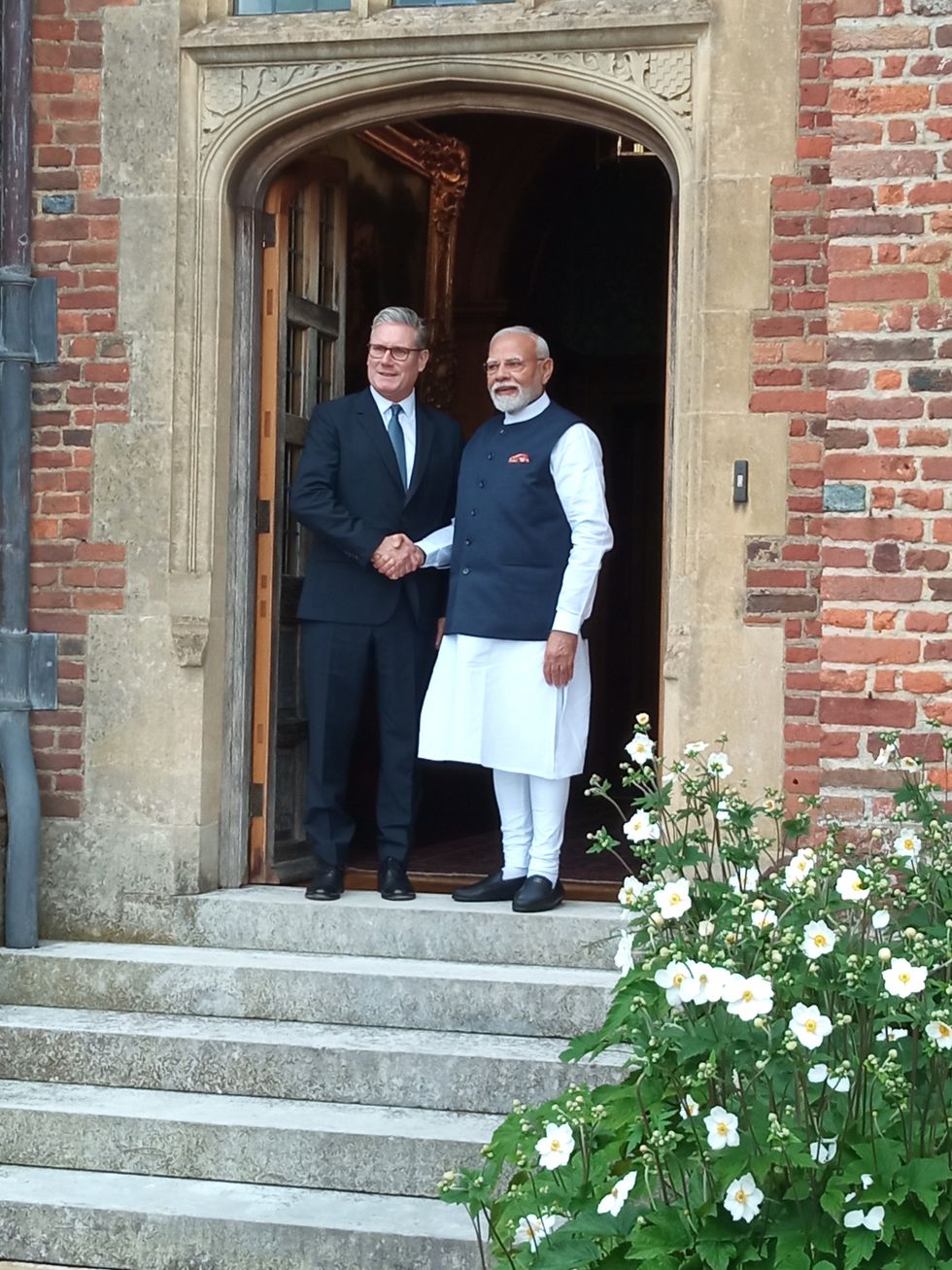The recently signed Free Trade Agreement between the UK and India, formally agreed upon at Chequers, holds significant implications, particularly for British politics and the standing of Prime Minister Sir Keir Starmer. While India’s extensive network of existing and negotiating Free Trade Agreements positions this deal within a broader global economic strategy, its political resonance in Britain could be uniquely transformative, potentially reshaping electoral dynamics and cementing Starmer’s leadership credentials.
India’s engagement in international trade extends far beyond this recent UK accord, encompassing a comprehensive array of economic partnerships. The nation has already established FTAs with various countries and blocs including the South Asian Free Trade Area (SAFTA), Sri Lanka, Nepal, Bhutan, Thailand, Singapore, Malaysia, Japan, South Korea, ASEAN, Mauritius, UAE, and Australia. Furthermore, India is actively negotiating substantial agreements with key global players like the United States and the European Union, alongside Oman, Peru, and Israel, underscoring its strategic intent to expand its global economic footprint.
From the perspective of Indian politics, the FTA with the UK is anticipated to have limited direct political consequences for Prime Minister Narendra Modi. With ongoing speculation about his political future, particularly concerning succession as he approaches 75, his robust appearance at Chequers suggests continued vitality. While future elections in 2029 will determine his longevity in office, the FTA’s immediate impact on his domestic political standing appears modest compared to his broader strategic objectives.
Conversely, the British Prime Minister, Sir Keir Starmer, stands to accrue considerable political capital from the successful conclusion of this trade deal, even though its full economic benefits will take time to materialize. A pivotal aspect of this gain lies in the potential for a significant realignment of British Indian voters. Many who previously aligned with the Conservative party under successive leaders like David Cameron, Boris Johnson, and Rishi Sunak, might now consider shifting their allegiance to Starmer’s Labour party in the upcoming 2029 general election.
This potential shift in voter sentiment is amplified by recent developments within the Conservative party. The influence of figures such as Kemi Badenoch, who publicly boasted about obstructing the UK-India FTA over migration concerns during her tenure as trade secretary, signals a pronounced move towards the far-right within the party. This ideological shift, coupled with calls from some Conservative Members of Parliament for an electoral pact with Nigel Farage’s Reform party, could alienate moderate voters and further drive disaffected British Indians towards Labour, perceiving Starmer as a more pragmatic and inclusive leader.
Both London and Delhi governments inherently operate with a pragmatic approach, necessitating collaboration with whichever party holds power. Starmer himself has highlighted the UK-India FTA as the most significant trade deal since Brexit, effectively leveraging negotiations initiated under previous administrations. History, however, will largely credit him with its successful conclusion, potentially positioning the UK economy for substantial growth by riding on India’s burgeoning economic trajectory. This strategic alignment underscores Starmer’s ambition to position Britain as a key global economic partner.
To fully capitalize on this diplomatic achievement and solidify his image as a highly effective and pragmatic Prime Minister, Starmer must strategically execute several key domestic policy adjustments. These include finding a suitable new role for Rachel Reeves, reversing the controversial VAT imposition on private schools which has proven ineffective, amending inheritance tax and non-dom rules to attract back British Indians residing in Dubai, and undertaking an official visit to India sooner rather than later. Such measures would not only secure further support from Indian origin voters but also reinforce his commitment to both economic progress and social equity, potentially paving his path to victory in the next general election, provided key cabinet positions are strategically managed.






Leave a Reply